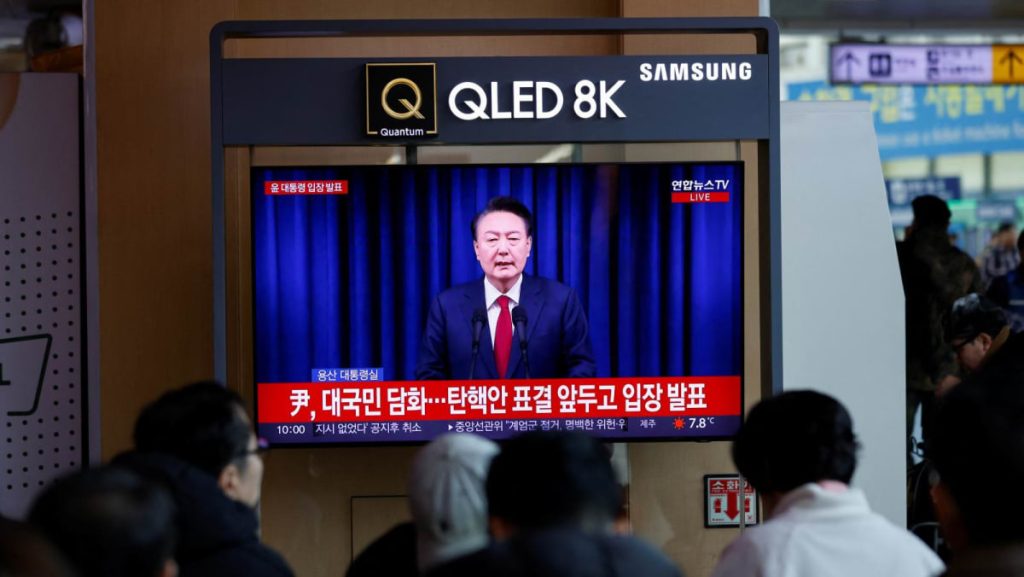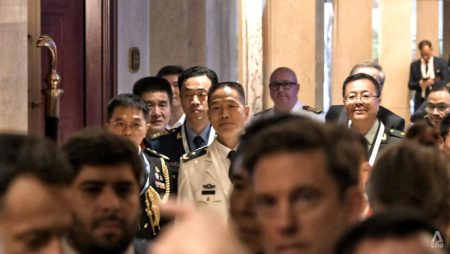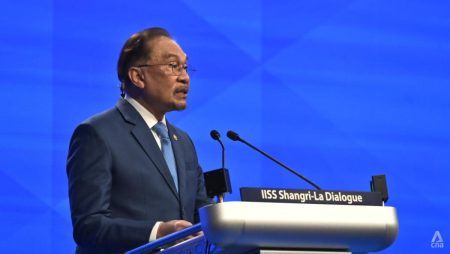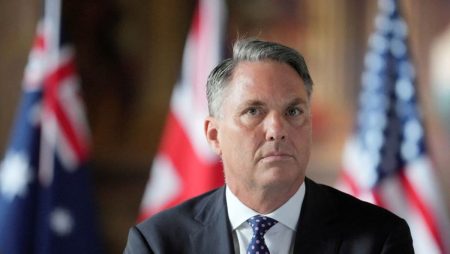Political Turmoil Engulfs South Korea: President Yoon Suk Yeol Faces Impeachment Vote Amidst Public Outcry
South Korea finds itself in the throes of a political crisis as President Yoon Suk Yeol faces an imminent impeachment vote following his controversial decision to briefly impose martial law. The nation remains deeply divided, with pro- and anti-Yoon factions engaging in a tense standoff that threatens to destabilize the country. Yoon’s abrupt declaration of martial law, though quickly rescinded, ignited a firestorm of criticism, raising serious concerns about his judgment and adherence to democratic principles. The public outcry, reflected in massive planned protests, underscores the gravity of the situation and the erosion of public trust in the president’s leadership.
The controversy began when President Yoon, citing unspecified threats to national security, declared martial law, effectively granting the military sweeping powers to control civilian life. This drastic measure, seen by many as an overreaction and a potential power grab, sent shockwaves through the country. Parliament immediately challenged the decree, defying military and police blockades to convene and vote against it. The president’s subsequent retraction of the martial law order did little to quell the public anger and calls for his removal from office. The incident has exposed deep fissures within South Korean society, raising questions about the stability of the government and the future of the country’s democracy.
President Yoon’s televised address, delivered just days after the martial law debacle, was a carefully orchestrated attempt to mitigate the damage and appeal to the nation. In his speech, he offered an apology for the disruption caused by his actions, acknowledging the anxiety and concern they had generated. However, he stopped short of admitting any wrongdoing or providing a clear explanation for the initial imposition of martial law. This calculated ambiguity, while perhaps intended to preserve a semblance of authority, ultimately failed to resonate with many Koreans who viewed the apology as insincere and insufficient. The address, instead of calming the storm, further fueled the calls for impeachment, demonstrating the depth of public resentment towards the president.
The impeachment proceedings against President Yoon represent a critical juncture in South Korea’s political history. The outcome of the vote, which requires a two-thirds majority in parliament, will have profound consequences for the country’s future. Should the impeachment motion succeed, Yoon will be removed from office, triggering a snap presidential election. This scenario carries the potential for further instability and uncertainty, particularly given the deep polarization that currently grips the nation. If the impeachment fails, however, Yoon will likely remain a deeply weakened leader, facing continued opposition and challenges to his authority. Regardless of the outcome, the impeachment process itself underscores the fragility of South Korean democracy and the importance of upholding the rule of law.
The mass protests anticipated in Seoul and other major cities across the country serve as a powerful testament to the public’s discontent with President Yoon’s leadership. Organizers predict a turnout of tens of thousands of demonstrators, representing a diverse cross-section of Korean society united in their opposition to the president. These protests, fueled by anger over the martial law incident and broader concerns about Yoon’s policies, represent a significant challenge to his authority. The scale and intensity of the demonstrations underscore the depth of public sentiment against the president and the growing momentum behind the impeachment effort. The ability of the government to manage these protests peacefully will be a crucial test of its ability to maintain order and stability during this turbulent period.
The ongoing political crisis in South Korea has far-reaching implications not only for the country’s domestic affairs but also for its international standing. The uncertainty surrounding the presidency and the potential for further instability could undermine South Korea’s role as a key player in the region. The country’s allies, particularly the United States, are watching the developments closely, concerned about the impact on regional security and economic stability. The outcome of the impeachment vote and the subsequent political developments will be closely scrutinized by international observers, as they hold significant implications for the future trajectory of South Korea and its relations with the world.










